By EB5 Investors Magazine Staff
EB5 Investors Magazine is pleased to announce the Top 15 Corporate and Securities Attorneys, selected in an industry-wide vote. To be eligible, distinguished attorney candidateds needed to primarily draft offering documents for EB-5 financing.
For more information, or to contact any of these attorneys, we invite you to view their listings at www.EB5Investors.com/directories.
Robert Cornish
Attorney
Wilson Elser Moskowitz Edelman & Dicker LLP

Robert “Bob” Cornish is an attorney at Wilson Elser in Washington D.C. He focuses on litigation, arbitration, regulatory and compliance matters for broker-dealers, investment advisers, hedge funds, commodity firms, institutional investors and family offices domestically and abroad. Cornish emphasizes alternative investment, broker-dealer and EB-5 fund formation, compliance and governance matters, including litigation, arbitration and enforcement. Previously, he served as chief legal and compliance officer and in-house counsel for prominent investment firms, where he acquired valuable experience handling complex business management and marketing matters for investment management clients. Cornish is a member of the EB-5 Securities Roundtable, a group of leading EB-5 securities attorneys organized to facilitate best practices in the offerings of EB-5 securities and to urge harmonization of the EB-5 program when it comes to securities laws.
What do you think the future of the EB-5 industry looks like?
The EB-5 industry will continue to mature and consolidate into a more mainstream component of the financial markets. Regional centers and individual advisers will likely gravitate toward investment adviser registration as additional projects create new revenue streams, and will likely use more conventional players in the financial markets through which capital may be raised. An overall culture of securities compliance similar to that in the investment adviser or broker-dealer industries will go further in bringing about EB-5 reform than any regulation or legislation. A credible, compliant industry can and will drive conversations on legislative and regulatory reform to benefit its participants.
How are you handling the issue of redeployment?
I counsel regional centers on redeployment issues assuming that they do not want to assume the role of an investment adviser or broker-dealer. My views on redeployment are somewhat contrarian: I believe a regional center or developer should leave as much management as possible of funds subject to redeployment to entities traditionally suited and regulated for that purpose. Namely, I advocate for trust structures where an independent trustee selected by the regional center or developer manages the investor’s funds are managed in tandem with I-829 processing times. That trustee, rather than the regional center or developer, manages the funds in accordance with USCIS policies.
Ronald R. Fieldstone
Partner
Saul Ewing Arnstein & Lehr LLP
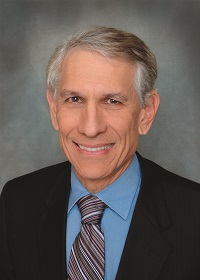
Ronald R. Fieldstone is a partner with Saul Ewing Arnstein & Lehr LLP and chair of its EB-5, Global Immigration and Foreign Investment Advisory Practice Group, which practices primarily in the areas of corporate/securities and taxation law. Fieldstone has actively served as corporate and securities counsel for multifaceted industries involving EB-5 immigrant visa investor offerings. He represents both developers and regional centers in EB-5 matters, currently handling more than 300 EB-5 projects with a combined capital raise of nearly $7 billion. His corporate and securities work includes the preparation of private placement memoranda and related documents. Fieldstone frequently lectures and publishes about the subject of EB-5 corporate/securities for numerous government-sponsored organizations, industry groups and professional associations. He recently served as a member of the IIUSA Best Practices Committee and now is a member of IIUSA’s Compliance Committee.
What do you think the future of the EB-5 industry looks like?
The EB-5 program’s future is somewhat in limbo with pending legislation. The delay of new legislation has tamed the marketplace, particularly in China where investors are seeking alternatives to EB-5. I would like reforms to include updated integrity measures to reduce the compliance burden. Regional centers need more independent accountability concerning the loan transaction where the party is required to distribute monies either on a loan model or equity model that is independent from the NCE principal. The visa cap should also be increased or derivatives removed. An additional set-aside for infrastructure and urban poverty is also necessary to account for the economic conditions that should be available to promote EB-5 investments.
How are you handling the issue of redeployment?
We provide language in offering documents contemplating redeployment both from an immigration and corporate security standpoint. We provide as much detail as possible on how redeployment will take place, even identifying projects or opportunities that would be appropriate for redeployment in a particular offering. Likewise important is navigating other redeployment options that would otherwise meet the June 14, 2017 Policy Guidelines. For existing transactions where redeployment was not dealt with in the documentation, the issues are more complex and should be addressed in more detail, including the need for proper due diligence, notification to investors and possibly investor consent to any redeployment not adequately described in the original offering document package.
Catherine DeBono Holmes
Chair, Investment Capital Law Group
Jeffer Mangels Butler & Mitchell LLP

Catherine Debono Holmes is chair of the Investment Capital Law Group at Jeffer Mangels Butler & Mitchell LLP (JMBM). She has practiced law at JMBM for 35 years and worked as a senior member of the Global Hospitality Group and Chinese Investment Group. Holmes helps real estate developers and business owners, brokers, investment advisers and investment managers raise and manage investment capital from domestic and international investors. In the last five years, she has represented over 100 real estate developers obtaining financing through the EB-5 program for hotels, multi-family and mixed use developments. She has been lead counsel on hotel and mixed-use developments and transactions, hotel management and franchise agreements and public-private hotel developments in the United States, Europe, China, South America and Asia Pacific. Holmes also represents private investment fund managers, registered securities broker-dealers and investment advisers. She is a member of the EB-5 Securities Roundtable.
What trends are you seeing in the EB-5 industry?
The EB-5 industry continues to mature as a financing market for job-creating projects in the United States with the adoption of better funding controls, better due diligence and better understanding of the elements of a sound EB-5 investment by both sponsors and marketing agents of EB-5 projects. Senior lenders and other financing providers are becoming more comfortable with EB-5 financing as a part of a project capital stack, which allows the financing of better quality projects. That in turn benefits EB-5 investors who depend upon the quality of their projects to obtain approval of their visas from USCIS.
How are you handling the issue of redeployment?
Recent USCIS policy guidance allows redeployment of capital for EB-5 investors, whose capital is required to remain “at risk” for potentially 10 years or longer. We now advise sponsors that it is possible to receive repayment of their initial investment and reinvest in one or more additional investments. We still do not know how similar the new investments must be to the original investment, so we analyze multiple options and allow the EB-5 entity manager to balance the investment risks with the immigration risks in selecting the type of reinvestment. We hope that USCIS provides further guidance on this issue soon.
Michael G. Homeier
Co-founder
Homeier Law PC

Michael G. Homeier practices corporate, business and securities transactional law in Los Angeles as a founding shareholder of Homeier Law PC. Homeier maintains a broad-based general corporate legal practice with an emphasis on mergers & acquisitions and business finance/securities. He is recognized for his expertise in alternative finance, including EB-5 finance, crowdfunding and cryptocurrency/blockchain initial coin offerings. As a leader of Homeier Law’s EB-5 practice, he has led the firm in representing clients on hundreds of different EB-5 matters large and small, helping companies and projects successfully raise billions of dollars and create thousands of new U.S. jobs through the EB-5 program. He is also working to influence positive policy changes and common-sense integrity reforms to the program. Homeier received his J.D. from the University of Southern California and his B.A. from UCLA. He is licensed to practice law in California.
What do you think the future of the EB-5 industry looks like?
The EB-5 industry will continue shifting from China-sourced investors to involve investors from an increasingly global marketplace while it struggles with too low of a visa ceiling and unfortunately protracted processing timeframes. We expect a gradual increase in the use of crowdfunding to locate EB-5 investors as it becomes costly to market in multiple countries. Meanwhile, our firm advocates congress’ reasonable integrity reform proposals, while we seek speedier processing times, a less combative adjudication approach and increased visa numbers, which directly lead to increased investment and job creation. Finally, I would like to see smaller businesses increasingly use the program in all markets, including rural and other non-coastline states and industries in addition to real estate.
How are you handling the issue of redeployment?
We explicitly address redeployment up-front both in our offering documents as well as definitive agreements, including several options available for clients to choose from, such as predetermined roll-over, new at-risk investment determined upon initial payback and mutual funds. Our firm’s tiered approach toward redeployment gives maximum flexibility with the lowest perceived risk of liability, seeking to protect investors and their immigration goals as well as fulfilling principals’ full disclosure obligations.
Kevin Kim
Lead Attorney, Corporate and Securities
Geraci Law Firm

Kevin Kim is the lead attorney of Geraci Law Firm’s corporate and securities department. He is dedicated to providing reliable and innovative legal solutions. Kim focuses his practice on real estate with an emphasis on private placements and alternative investments for private lenders, real estate developers and real estate entrepreneurs. His securities and corporate practice includes preparing complex private and public securities offerings for alternative investment platforms for domestic and international clients. This includes drafting, advising and designing securities offerings and transactions for investment via the EB-5 program. Kim works with developers and regional centers on private placement memoranda, mezzanine loan documents, preferred equity agreements and corporate governance. His practice also includes corporate and transactional work for the E-2 and L-1 visa programs. Kim lectures and has published several articles on mortgage funds, debt syndications and the EB-5 program as an opportunity for real estate developers and lenders.
What do you think the future of the EB-5 industry looks like?
I believe that increased regulation and oversight will further legitimize and normalize the EB-5 industry. This will help eliminate the false stigma of high fraud risk or malfeasance by ensuring that only serious operators utilize the program. That said, I would like to see long term, stable reform so that the program remains open for foreign investors to stimulate the U.S. economy. Specifically, I would like an increase in the total number of visas available, either by expanding the total number or by allowing families to apply together. Finally, I would like specific, detailed guidance on redeployment of EB-5 investor capital.
How are you handling the issue of redeployment?
We incorporate language to permit the NCE’s management or general partner to redeploy funds according to USCIS guidelines. This helps us account for future changes in USCIS redeployment policies. We advise clients of the potential Investment Advisor Act, the Investment Company Act and state regulatory restrictions for executing on new investments for redeployment purposes. We help NCEs and regional centers find redeployment options compliant with USCIS guidelines, such as real estate loans, pools of loans or mortgage funds. Further, we advise clients on structuring investments so they will not have to register as an investment adviser or risk violating state lending regulations.
Andrew Kingston
Managing Partner
Kingston Petersen

Andrew Kingston is managing partner of Kingston Petersen based in Seattle, where he provides financing, transactional and corporate law services to select clients throughout the world. Kingston has acted as corporate and securities counsel to issuers in EB-5 offerings since 2009. He previously served as general counsel to private and publicly traded companies. Kingston is a founding partner of NNDKP, one of the largest and most respected law firms in Southeastern Europe. Kingston also served as adjunct professor of law at Cornell Law School, teaching corporate finance in emerging markets. Kingston began his career as law clerk to Hon. Harold M. Fong, Jr., chief judge of the U.S. District Court for the District of Hawaii. Kingston earned a B.A. with high distinction from the University of Virginia and received his J.D., cum laude, from Harvard Law School. He is a member of the Washington State Bar.
What do you think the future of the EB-5 industry looks like?
The original EB-5 vision of a solitary alien entrepreneur owning and managing a new job-creating enterprise has morphed into giant pools of capital financing billion-dollar real estate projects. Existing rules are outdated, but political dysfunction in Washington has blocked reform. Real reform should clarify the regional center’s proper role. Is it a private regulator, an investment bank, a securities intermediary, an immigration support service or some combination?
What trends are you seeing in the EB-5 industry?
The industry is maturing and becoming less tolerant of cowboys and charlatans. This is a good thing. Although the quality of offering documents is getting better, they are still impossible for ordinary people to understand. I wish all private placement memoranda were required to be 25 pages or less and written in plain English. This would force sponsors to eliminate the practice of burying bad news.
How are you handling the issue of redeployment?
We handle redeployment as a matter to be decided by investor consent, not by the NCE manager. This reduces opportunities for self-dealing and gives investors a say in what happens to their money. It also protects the NCE manager, most of whom are not registered investment advisers and therefore are not licensed to make redeployment decisions.
Debbie Klis
Shareholder
Polsinelli PC

Debbie Klis is a shareholder at Polsinelli PC. She has a broad financial practice focused on business, securities and private fund formation including EB-5 investment funds and regional centers, hedge funds, private equity and real estate funds and international master-feeder funds. Her experience includes structuring successful debt and equity EB-5 investments coupled with public financing: HUD Section 221(d)4 senior mortgage loans, the low -income housing tax credit, federal and state historic tax credits, new market tax credits, local government revenue bonds, tax-exempt municipal bonds, federal energy tax credits, crowdfunding and assorted sources of private financing. Klis’ project experience with EB-5 financing includes mixed-use commercial projects, condominium and single-family home construction, green-energy solar farms, restaurants, hotels, casinos, a national museum, a research and development facility and other real estate and company financings. Klis is a frequent speaker and author regarding EB-5 project finance and related securities and corporate matters.
What do you think the future of the EB-5 industry looks like?
I foresee a few major changes, including: amendments to the TEA definition favoring investments in rural areas and closed military bases and restricting the TEA definition in urban areas, increases to the minimum investment requirements, mandatory use of escrow agents to oversee collection and deployment of EB-5 funds, and USCIS project preapproval mandates. I would like to see reforms including: no changes to the TEA definition in urban areas; increases to the number of visas; minimal increase to the investment amounts with gradual increases over time; clarity regarding deployment in at-risk investments; and a carryover of investors’ time in the queue when they amend their I-526 petition because of unforeseeable changes and incentives for utilizing EB-5 funds for low-income housing projects.
How are you handling the issue of redeployment?
I have included redeployment language in our clients’ offering documents for several years so we are well positioned to assist them with project restructurings, refinancings and assets sales as business needs shift. For new clients, I am relying on the policy guidance in the updated USCIS Policy Manual, which provides flexibility to meet the realities of the business world. In reliance on the Policy Manual, I am assisting clients to restructure projects – educating regional center principals in order to gain their permission for the restructuring, the new investment and the release of collateral from the original investment – and guiding clients on replacement investments.
Jor Law
Co-founder, Homeier Law PC
Co-founder, VerifyInvestor.com

Jor Law is a co-founder of Homeier Law PC, practicing corporate and securities transactional law in Los Angeles. Law maintains a broad-based general corporate legal practice with an emphasis on mergers and acquisitions and finance. He is particularly experienced in alternative finance, including EB-5 finance, crowdfunding and cryptocurrency/blockchain initial coin offerings. Law founded Homeier Law’s EB-5 practice, which represents hundreds of EB-5 clients who have successfully contributed billions of dollars through the EB-5 program. Homeier Law also continues to influence policy changes and reforms to the EB-5 program. Law received his J.D. from Columbia University and his bachelor’s degree from the University of California, Berkeley. Law is licensed to practice law in California and New York. Law is also a co-founder and the principal architect of verifyInvestor.com, a provider of accredited investor verification compliance solutions.
What do you think the future of the EB-5 industry looks like?
I expect that we will see the EB-5 industry continue its global diversification away from China. There may be an increase in the use of crowdfunding laws and techniques to locate EB-5 investors as it becomes exponentially costly to market in multiple countries around the world. I would like to see faster processing times, a less paranoid approach for adjudication and practical integrity measures. In addition, I would like to see investors who have made a qualifying investment not be penalized simply because the “at-risk” investment actually failed.
How are you handling the issue of redeployment?
We specifically address the concept of redeployment both in definitive documents as well as disclosure documents with several options available for clients to choose from. Our firm takes a tiered approach toward redeployment, which is aimed to give maximum flexibility with the least amount of liability. We also are now advising on a number of workout situations where we have been retained typically by a new project to help them transition investors from another failed project into their own project.
Mariza McKee
Partner
Kutak Rock LLP

Mariza McKee is a partner in Kutak Rock LLP’s Chicago office where she counsels EB-5 clients. McKee advises regional centers, new commercial enterprises, job-creating entities and EB-5 stakeholders involved with domestic and international offerings seeking EB-5 investment. She led Kutak Rock’s EB-5 industry analysis in 2010 and was instrumental in structuring its EB-5 Finance Practice, which is an interdisciplinary, national team of securities, tax, corporate, lending and real estate lawyers. McKee approaches her work from a risk manager’s vantage and employs a tailored, systematic approach of structuring and documenting her client’s EB-5 transactions, working to ensure that clients are well-armed to balance business objectives and risks. She leverages Kutak Rock’s national platform and experience in the municipal finance industry to offer clients insight, innovation and efficiency. A frequent speaker and writer on EB-5 and securities law considerations, McKee is an active EB-5 community member dedicated to elevating EB-5 industry practices and standards.
What do you think the future of the EB-5 industry looks like? What reforms would you like to see?
We believe the EB-5 industry of the future will be reformed, whether through legislation or regulation, and that it will eventually mature into a development finance option akin to more established incentive-based financing tools, such as tax credits. It’s important to reauthorize or make permanent the EB-5 Regional Center Program to allow a foundation from which the industry can continue to stabilize and grow. We would like to see thoughtfully-designed integrity measures that encourage transparency and accountability throughout the EB-5 investment and immigration processes. Additionally, we would like to see meaningful reform that encourages investment in rural and economically distressed areas.
How are you handling the issue of redeployment?
We evaluate legal implications of redeployment for every new EB-5 engagement and for transactions that did not originally contemplate redeployment. Our redeployment advice focuses on disclosing and documenting redeployment strategy in compliance with securities laws and USCIS policy with particular attention on NCE business scope and avoiding material change. Redeployment into new issue municipal bonds is of particular interest to Kutak Rock given our history in the public finance sector. Kutak Rock has served as bond counsel in more than 10,500 municipal bond issues aggregating over $320 billion in all U.S. states. Our public finance attorneys and EB-5 team are working together to analyze considerations related to redeployment into new issue municipal bonds.
Jennifer Mercier Moseley
Partner
Burr & Forman LLP

Jennifer Mercier Moseley is a corporate and securities partner at Burr & Forman LLP in Atlanta. She advises small start-ups to large, public companies in an array of transactions and capital raising activities. After working with only institutional clients at the beginning of her career in New York, Moseley discovered that advising start-up and developmental stage companies offer a far more fulfilling role as counselor and problem-solver. Moseley enjoys understanding clients’ needs and navigating the intricacies of securities laws with practical solutions. Moseley was introduced to EB-5 in early 2008 when she was asked to assist a JCE with a loan from Korean investors. Moseley began writing articles addressing securities law implications in EB-5 and speaking at conferences during the “early years” when securities law was not at the forefront of EB-5 related discussions. Moseley continues to help regional centers and JCEs with solutions to meet their goals.
What do you think the future of the EB-5 industry looks like?
Due to recent SEC actions and increasingly negative views of EB-5, I think there will be more interagency cooperation and emphasis on oversight in the reforms. I would like to see this oversight apply to the industry’s payments to third parties (such as brokers) and see guidance from the SEC on payments to parties overseas. Generally, an oversight that is tailored towards actually deterring fraud is needed. Also, as EB-5 investors become savvier on the intricacies of EB-5 requirements, investors’ and regional centers’ attention will turn towards more complex issues such as tax consequences and services providers in this area will increase.
How are you handling the issue of redeployment?
I have discussions upfront with the JCE about other projects into which we could redirect EB-5 funds in case a loan or equity investment will be repaid before an EB-5 investor has had his or her I-829 petition adjudicated. While funds can be redeployed to a project of a different developer, I have been able to negotiate with JCEs to provide contractual obligations allowing the regional center to redirect funds to a future project. When the JCE has a proven track record, investors have a higher level of comfort having this option in a contract in advance.
Steve B. Park
Partner
Ballard Spahr LLP

Steve B. Park is a partner in Ballard Spahr’s Atlanta office and co-practice leader of the firm’s EB-5 Group. He represents a wide range of regional centers, project developers and other sponsors in EB-5 financing transactions, related securities offerings and other compliance aspects of the program. He also focuses on commercial lending transactions for multinational companies and banking clients who extend credit for Korean and other corporate borrowers in the United States. He brings his finance experience to the negotiating table when structuring EB-5 deals and when advising his clients on how to structure the EB-5 capital stack. His strong relationships with traditional banks allow him to understand loan transactions and the role that traditional and EB-5 lenders can play in EB-5 deals. Park frequently speaks on EB-5 related topics and writes on finance and securities issues for EB-5 industry professionals. He is fluent in Korean.
What reforms would you like to see?
The EB-5 industry has been evolving and I believe it is much better situated now than a few years ago to make the necessary adjustments to continue to thrive and drive value to both foreign investors and project developers. Industry professionals share the common goal of being vigilant and adopting best practices to guard against fraud and bad actors and to strictly comply with both immigration and securities law requirements. With respect to reforms, I would like to see safe-harbor regulations from the SEC providing clearer guidance on agent relationship in foreign jurisdictions and additional visa set-asides for rural projects.
What trends are you seeing in the EB-5 industry?
Both EB-5 investors and foreign agents are becoming more conservative and sophisticated, which drives up the quality of EB-5 projects and likelihood of project success and repayment of EB-5 funds to the investors. I am seeing much more focused attention on securities law compliance – from overall structure involving registered broker-dealer, third party due diligence, escrow and agent fee arrangements to better disclosure documents for the investors. The transaction documents continue to get more complicated as EB-5 funds make up a smaller portion of the financing capital stack and need to be integrated with other debt and equity sources.
Bruce Rosetto
Corporate and Securities Shareholder
Greenberg Traurig LLP
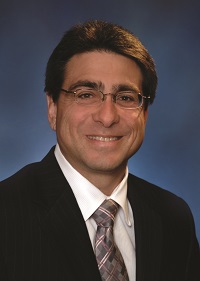
Bruce Rosetto is a corporate and securities shareholder at Greenberg Traurig LLP and is co-managing shareholder for the firm’s Boca Raton office. In addition to his experience with EB-5 program corporation and securities transactions, he works in debt and equity financings, mergers and acquisitions and corporate governance. His practice includes general corporate transactional work, debt and equity financings, EB-5 corporation and securities transactions, corporate finance, mergers and acquisitions, corporate governance, securities, investment banking, broker/dealer regulation, intellectual property and licensing, employment law, banking and real estate transactions. He also advises clients on raising capital for and establishing regional centers to administer projects qualifying for investment under the EB-5 program. Rosetto received his J.D. from Villanova University School of Law. He is highly engaged in the legal community and is a member on numerous boards and associations. Rosetto has been recognized as a Florida Super Lawyer and in the Legal 500 UK.
What do you think the future of the EB-5 industry looks like?
I think an increase in the $500,000 sum required to invest will increase, probably to $1 million or even more, and the TEA designations will be tightened. The long-term impact will be to reduce the pool of EB-5 investors who can afford to file an EB-5 petition. On the other hand, integrity measures, even without legislation, are being adopted by most regional centers and this is very positive for the EB-5 program as those investors who do move forward with the EB-5 program will be investing in a better class of projects.
What trends are you seeing in the EB-5 industry?
One of the major trends in the EB-5 industry is the continued acceptance and growth of EB-5 investors from countries outside of China. This trend is especially showing up in projects in Florida, which is seeing significant growth in EB-5 investors from South America, Europe and the Middle East. A second trend, in large part due to the numerous failed projects across the country, is that the EB-5 investors and their representatives are performing much more stringent due diligence and analysis of the project and the developer track record before making an investment.
John Tishler
Partner
Sheppard Mullin
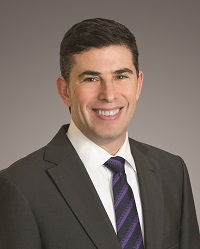
John Tishler practices corporate and securities law as a partner at Sheppard Mullin, a global law firm. He is team leader of the EB-5 Project Finance Team and has served from time to time as leader of the Public Companies and Capital Markets Group. Tishler’s practice includes domestic and international capital markets, corporate finance, corporate governance, business transactions, mergers and acquisitions and technology. For more than 20 years, Tishler has helped clients in designing and executing successful investment programs. He represents developers, regional centers and other intermediaries for their participation in the EB-5 program. Tishler is a leading EB-5 securities and project finance attorney, frequent writer and speaker and the co-editor and co-author of The EB-5 Handbook: A Guide for Investors and Developers (2014). He is a graduate of Cornell University and Yale Law School.
What trends are you seeing in the EB-5 industry?
The flight to quality predicted for many years has arrived. Migration agents are increasingly sophisticated about project selection and credit quality. We also see more deals structured as preferred equity, which is often more flexible in the capital stack than mezzanine debt. Factors including retrogression effects also have made it difficult to raise EB-5 funds for projects depending on such funds to complete construction. We see the majority of deal volume for taking out bridge financing as USCIS guidance permits. Many projects require restructuring and an increasing number of disputes are associated with EB-5 financing. Such circumstances could often be avoided with careful structuring, planning and document preparation.
How are you handling the issue of redeployment?
From our first project, our firm has always included redeployment planning for clients. Fundamentally, the USCIS redeployment requirement through the investors’ sustainment periods increases EB-5 capital’s value to the users of that capital. Redeployment is a major consideration for developers – without available redeployment into other projects , many developers would pass on EB-5. Of course, redeployment presents risks – which is exactly the point, as USCIS requires redeployed funds be “at risk”. Migration agents are negotiating redeployment as part of project underwriting, and hiring U.S. project finance counsel. Redeployment requires balancing the interests of investors, intermediaries and developers in the face of regulatory uncertainty.
Osvaldo Torres
Principal
Torres Law, P.A.
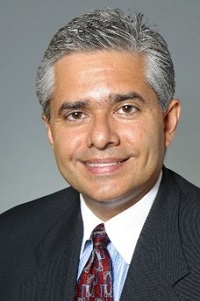
Osvaldo Torres is the principal at Torres Law P.A. During his career, Torres has focused on complex corporate transactions, including securities offerings and mergers and acquisitions. For the past six years, Torres has been immersed in EB-5 work, successfully representing regional centers and projects with corporate structuring and securities offerings matters. Torres has worked on numerous EB-5 offerings, including those involving hotel development, residential construction, senior independent living complexes, healthcare and medical device companies, restaurants and franchises. Torres frequently speaks at EB-5 conferences and serves on IIUSA’s President’s Advisory Council and Compliance, Public Policy and Editorial Committees. He is also on the Steering Committee for the EB-5 Investment Coalition and a member of the EB-5 SEC Roundtable. Torres received his J.D. from the University of Pennsylvania Law School.
What do you think the future of the EB-5 industry looks like?
Given the increasing visa backlog for mainland Chinese investors and the likelihood that Vietnamese investors will soon also be oversubscribed, the EB-5 industry will have to expand to new markets to seek investors, including India, the Middle East and Latin America. I expect that the preferences of investors in those markets will ultimately drive the structure of future EB-5 projects. I believe that the EB-5 industry would benefit from third-party fund administration requirements for affiliated deals to ensure that investors are better protected in light of the conflicts of interest posed by such deals.
What trends are you seeing in the EB-5 industry?
Within my practice, I have been involved in an increasing number of EB-5 projects with marketing targeted to Latin American investors. I have also noticed that more and more projects are being structured as equity investments rather than loans between the new commercial enterprise and the job creating entity. Finally, it seems that regional centers and escrow banks are becoming increasingly involved in reviewing project documents and will often insist on being provided with final business plans and offering documents prior to issuing signed regional center agreements or escrow agreements.
Clem G. Turner
Corporate and Securities Practice Manager
Barst Mukamal & Kleiner LLP
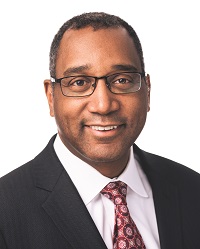
Clem Turner is a partner in the New York Office of Barst Mukamal & Kleiner LLP, where he leads the Corporate and Securities Practice. Turner has significant experience in immigration investment, crowd finance, venture capital, securities law and general business and corporate counseling. He has counseled numerous corporations and regional centers raising capital through the EB-5 program on matters of structuring, strategy, securities law and corporate law. His experience includes EB-5 offerings ranging from “direct” $500,000 raises up to complex $400 million raises and everything in between. Turner has been interviewed about the EB-5 program by various media sources and has published several articles related to EB-5. He routinely lectures at events and conferences throughout the world. Turner is a graduate of Princeton University and Georgetown University Law Center and is admitted to practice law in New York and California.
What do you think the future of the EB-5 industry looks like?
The caliber of EB-5 offerings has steadily increased over the past five years, as word of the program has spread to reputable developers with high-quality projects. Simultaneously, the SEC and FINRA have increased their scrutiny of EB-5 offerings, helping to increase transparency of disclosure, which should lead to a more efficient worldwide market. I expect these trends to continue, providing more regulatory structure and guidance to the industry. I would like to see several proposed “Integrity” reforms become enacted, so that those EB-5 participants who currently incur additional expense implementing “best practices” are no longer at a cost disadvantage.
What trends are you seeing in the EB-5 industry?
As a result of various factors, I believe smaller regional center and direct deals are gaining traction as larger deals requiring hundreds of investors diminish. This could lead to more widespread utilization of the program, especially if the proposed reforms making rural and infrastructure projects more attractive are passed. Another emerging trend I am observing, in part likely because of increased SEC and FINRA oversight, is a rise in broker dealers, investment advisors, due diligence providers and third party fund administrators who cater to EB-5 investors and the EB-5 industry. This should benefit EB-5 investors and, ultimately, the EB-5 market.
DISCLAIMER: The views expressed in this article are solely the views of the author and do not necessarily represent the views of the publisher, its employees. or its affiliates. The information found on this website is intended to be general information; it is not legal or financial advice. Specific legal or financial advice can only be given by a licensed professional with full knowledge of all the facts and circumstances of your particular situation. You should seek consultation with legal, immigration, and financial experts prior to participating in the EB-5 program Posting a question on this website does not create an attorney-client relationship. All questions you post will be available to the public; do not include confidential information in your question.







